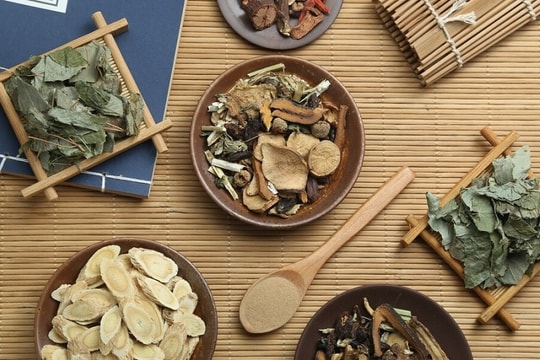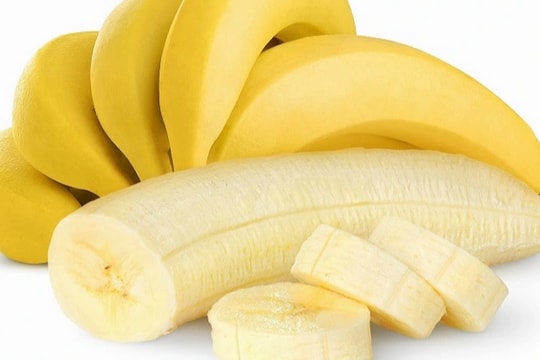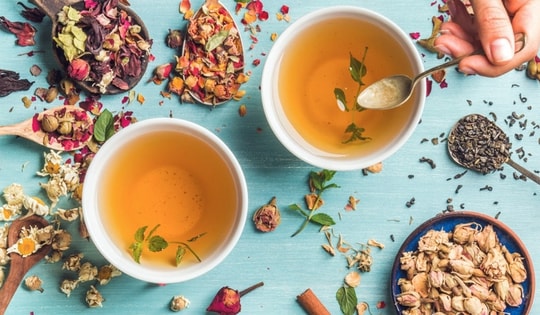4 herbs to help increase resistance to weather changes
Weather changes are one of the factors that increase the risk of sore throat, flu, headache... To protect yourself and your family from common colds, you can use some of the herbs below to increase resistance and prevent disease.
Resistance or the immune system is the body's defense mechanism, protecting people from pathogens such as bacteria, viruses, parasites, and environmental toxins. To have a healthy resistance, the body needs to be nourished with a reasonable diet.
In particular, herbs and spices are ingredients that help increase resistance that our people have used and passed down for centuries.
Here are some immune-boosting herbs and spices that you should keep in your kitchen:
1. Ginger - An effective herb to increase resistance
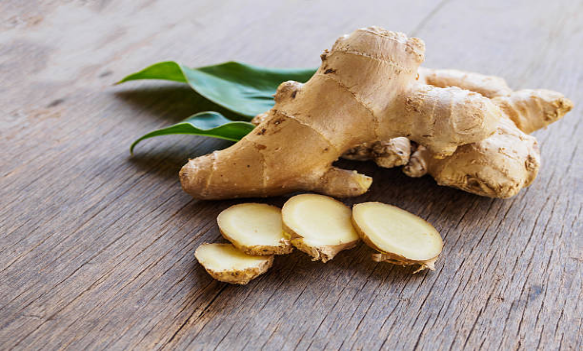
Ginger (Zingiber officinale)Ginger is a familiar spice and a commonly used herb in Oriental medicine. The main components of ginger are gingerol and shogaol, which have anti-inflammatory, antioxidant and pain-relieving properties. For centuries, ginger has been an effective body warming remedy, helping to treat colds, headaches, nausea and many digestive problems.
Consuming ginger every day in the right dosage can increase resistance, protect the body from chronic pathogens, and help the body recover quickly from common colds and flu.
Suggested usage:Use ginger in your daily cooking, such as adding a few slices of ginger to boiled dishes or marinating meat and fish with ginger. In addition, a cup of fresh ginger tea, steeped for 10 minutes, is effective in reducing unpleasant symptoms and shortening the duration of illness.
2. Turmeric
Turmeric (Curcuma longa) has a bright yellow color and has been used for a long time to treat inflammation, skin problems, joint and respiratory problems...
The main ingredient of turmeric is curcumin, which has effective anti-inflammatory and antioxidant effects. In addition, curcumin is used to relieve pain and osteoarthritis with an effect equivalent to non-steroidal anti-inflammatory drugs - NSAIDs (such as ibuprofen, diclofenac, celecoxib...) without side effects.
Research has shown that using curcumin from turmeric has the ability to activate T cells and B cells, enhance the body's antibody response, thereby supporting a healthy immune system. Therefore, supplementing curcumin from turmeric helps create a solid wall to prevent cold and flu symptoms from visiting.
Suggested usage:The body absorbs the medicinal properties of turmeric well when combined with fat. Therefore, you can combine turmeric with fish, eggs, butter, vegetable oil (olive oil, coconut oil) to prepare daily dishes such as curry, soup, fish, grilled meat. In particular, turmeric combined with milk and black pepper helps increase the bioavailability of curcumin, creating a delicious drink while increasing the ability to absorb all the medicinal properties of turmeric.
3. Mint
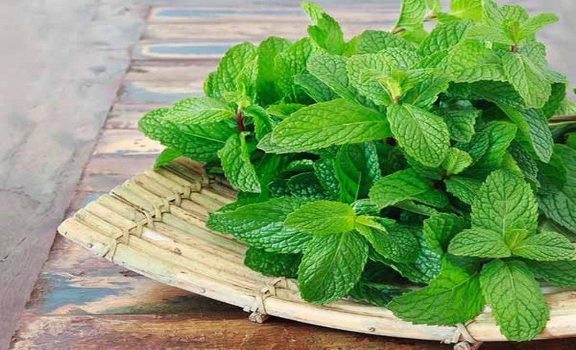
Peppermint (Mentha arvensis) is a fragrant herb, famous for its cooling properties, commonly used in both fresh and dried form with many medicinal properties that are good for respiratory, digestive and mental health.
Mint contains flavonoids as its main ingredient with anti-inflammatory, anti-viral, and anti-oxidant properties. In addition, mint is rich in ingredients such as phosphorus, calcium, vitamins A, D, E, and C, which help protect cells, support increased resistance, and reduce the risk of chronic diseases.
Research has shown that the menthol component in peppermint is a commonly used treatment for cold and flu symptoms, helping to clear the upper respiratory tract and effectively relieve pain. Therefore, peppermint is an effective herb to increase resistance, help prevent and speed up the healing process.
Suggested usage:A cup of strong peppermint tea (3-5g dried peppermint) can quickly relieve cold and flu symptoms. Steaming with peppermint essential oil also helps clear the upper respiratory tract. In addition, peppermint is also a spice and seasoning that can be combined with many different dishes and drinks.
4. Cinnamon
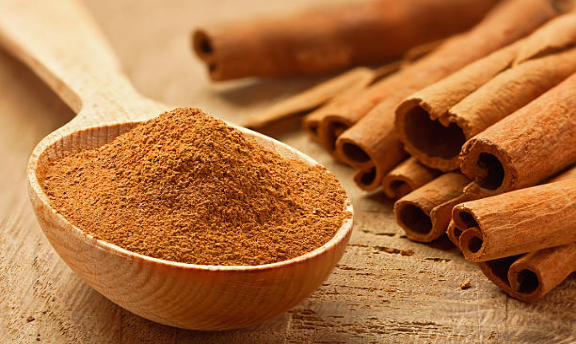
Cinnamon (Cinnamomum) is a warming spice known for its distinctive aroma and distinctive flavor. The main components of cinnamon include cinnamaldehyde, powerful polyphenol antioxidants with anti-inflammatory, antibacterial, and antiviral properties.
For centuries, cinnamon has been a popular ingredient in dishes and desserts with the effect of protecting the digestive system, supporting cardiovascular health, bones and joints. In particular, cinnamon contains higher antioxidant properties than mint and ginger. Therefore, cinnamon is also an effective herbal medicine to strengthen the immune system, helping to prevent and reduce symptoms of colds.
Suggested usage:Cinnamon powder can be combined harmoniously with a variety of dishes and drinks such as grilled dishes, salads, soups, coffee or milk. Cinnamon sticks stewed with apples or pears will create a delicious warming soup or you can brew a cup of flower tea with cinnamon sticks to support the digestive system after meals.
In addition to supplementing nutrients from food and using herbs and spices to help strengthen resistance, you need to have a reasonable hygiene and rest regimen. Wash your hands with soap, limit touching your eyes, nose, mouth... At the same time, exercise regularly and ensure enough sleep. Quality sleep will support immune cells to function effectively and improve the body's resistance.





